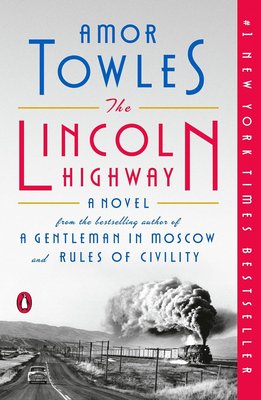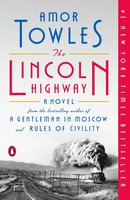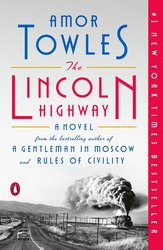#1 NEW YORK TIMES BESTSELLER More than ONE MILLION copies sold A TODAY Show Read with Jenna Book Club Pick A New York Times Notable Book, a New York Times Readers’ Choice Best Book of the Century, and Chosen by Oprah Daily, Time, NPR, The Washington Post , Bill Gates and Barack Obama as a Best Book of the Year “Wise and wildly entertaining . . . permeated with light, wit, youth.” — The New York Times Book Review “A classic that we will read for years to come.” — Jenna Bush Hager, Read with Jenna book club “Fantastic. Set in 1954, Towles uses the story of two brothers to show that our personal journeys are never as linear or predictable as we might hope .” —Bill Gates “A real joyride . . . elegantly constructed and compulsively readable.” —NPR The bestselling author of A Gentleman in Moscow and Rules of Civility and master of absorbing, sophisticated fiction returns with a stylish and propulsive novel set in 1950s America In June, 1954, eighteen-year-old Emmett Watson is driven home to Nebraska by the warden of the juvenile work farm where he has just served fifteen months for involuntary manslaughter. His mother long gone, his father recently deceased, and the family farm foreclosed upon by the bank, Emmett's intention is to pick up his eight-year-old brother, Billy, and head to California where they can start their lives anew. But when the warden drives away, Emmett discovers that two friends from the work farm have hidden themselves in the trunk of the warden's car. Together, they have hatched an altogether different plan for Emmett's future, one that will take them all on a fateful journey in the opposite direction—to the City of New York. Spanning just ten days and told from multiple points of view, Towles's third novel will satisfy fans of his multi-layered literary styling while providing them an array of new and richly imagined settings, characters, and themes. “Once again, I was wowed by Towles’s writing—especially because The Lincoln Highway is so different from A Gentleman in Moscow in terms of setting, plot, and themes. Towles is not a one-trick pony. Like all the best storytellers, he has range. He takes inspiration from famous hero’s journeys, including The Iliad , The Odyssey , Hamlet , Huckleberry Finn , and Of Mice and Men . He seems to be saying that our personal journeys are never as linear or predictable as an interstate highway. But, he suggests, when something (or someone) tries to steer us off course, it is possible to take the wheel.” – Bill Gates






